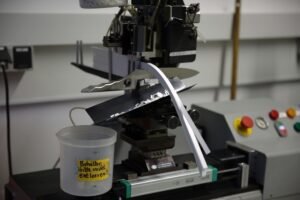Contents
ToggleQuality Standards in Mechanical Works
Ensuring the safety, efficiency, and sustainability of mechanical systems within buildings is paramount. The Central Public Works Department (CPWD) of India plays a crucial role in establishing and enforcing rigorous quality standards for all mechanical works. These standards, rooted in relevant Indian Standards (IS) codes and national regulations, guide every aspect of the project lifecycle, from material selection and installation to testing, maintenance, and energy efficiency.
Key Quality Pillars for CPWD Mechanical Works
- Material Excellence:
- Quality Assurance: Only materials that meet stringent quality standards and specifications are approved for use. Sourcing from reputable vendors is paramount to ensure reliability and durability.
- Rigorous Testing: All materials undergo comprehensive testing before implementation to verify their suitability and compliance with project requirements.
- Installation Precision:
- Adherence to Blueprints: Installation must strictly adhere to approved engineering drawings and specifications to guarantee accuracy and safety.
- Skilled Workforce: Experienced and certified technicians, under the supervision of qualified engineers, are essential to ensure installations are performed according to best practices.
- Comprehensive Testing & Commissioning:
- Thorough Evaluation: All mechanical systems undergo rigorous testing and commissioning to verify functionality and performance.
- Expert Oversight: Skilled personnel utilizing calibrated and certified equipment conduct these tests to ensure accurate and reliable results.
- Safety First:
- Unwavering Commitment to Safety: Adherence to stringent safety guidelines is non-negotiable.
- Robust Safety Measures: Adequate safety precautions, including scaffolding, safety harnesses, and nets, must be implemented throughout the project lifecycle.
- Documentation & Maintenance:
- Comprehensive Record Keeping: Detailed records, including drawings, specifications, test reports, and operation & maintenance manuals, must be maintained throughout the system’s lifecycle.
- Regular Maintenance: Implementing a proactive maintenance schedule is crucial for optimizing system performance, minimizing the risk of failures, and extending equipment lifespan.
- Sustainability Focus:
- Energy-Efficient Design: Prioritizing energy-efficient solutions is paramount. Mechanical systems should be designed to minimize energy consumption and reduce environmental impact.
- Sustainable Practices: Embracing sustainable building practices, such as the integration of renewable energy sources, is crucial for a greener future.
Guiding Principles: IS Codes & Beyond
The CPWD adheres to the Bureau of Indian Standards (BIS) for all mechanical works, ensuring projects align with recognized and respected industry standards. Some key IS codes include:
- IS 806: Code of Practice for Use of Mechanical Ventilation and Air Conditioning in Buildings
- IS 812: Code of Practice for Selection, Installation, and Maintenance of Automatic Sprinkler Systems
- IS 831: Code of Practice for Hospital Engineering
These codes, along with other relevant guidelines such as the National Building Code (NBC), Indian Electricity Rules (IER), and the National Electrical Code (NEC), provide a comprehensive framework for safe and efficient mechanical installations.
Conclusion
The CPWD’s unwavering commitment to quality standards in mechanical works is crucial for creating safe, efficient, and sustainable buildings. By adhering to stringent guidelines, embracing innovation, and prioritizing safety and sustainability, the CPWD ensures that mechanical systems not only function flawlessly but also contribute to a healthier and more environmentally responsible built environment.












